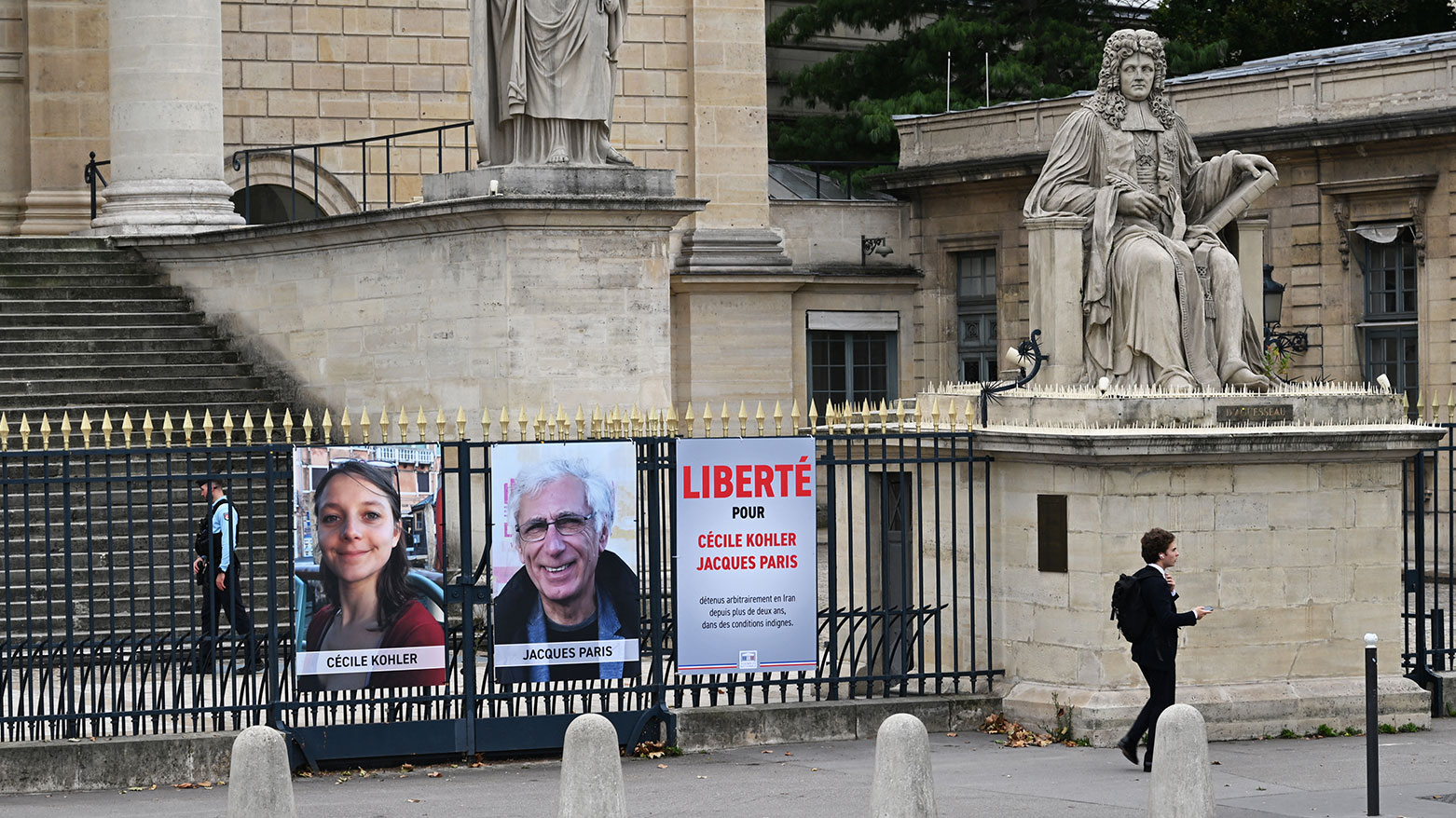Iran has Imposed Heavy Sentences on Two French Citizens
Iran's judiciary has sentenced two French nationals to heavy prison terms for espionage and acting against national security. The verdicts coincide with ongoing negotiations for a potential prisoner swap between Paris and Tehran.

Erbil (Kurdistan24) – Iranian authorities have sentenced two French nationals to lengthy prison terms on charges including espionage for Israel and acting against national security, the country’s judiciary announced on Tuesday through its official outlet, Mizan Online.
According to the statement, the two French citizens—whose names have not been disclosed—were arrested in March 2023 and have now received severe sentences following what Tehran described as “comprehensive judicial proceedings.” The announcement did not specify the precise circumstances of their arrest or the nature of the evidence presented against them.
The judiciary report said that one of the defendants was sentenced to six years in prison for espionage on behalf of French intelligence services, five years for association to commit a crime against national security, and 20 years in exile for alleged intelligence cooperation with “the Zionist regime.”
The second defendant received a 10-year sentence for spying for the French intelligence services, five years for conspiracy against national security, and 17 years for assisting in intelligence cooperation with Israel, according to Mizan.
Under Iranian law, these sentences are to run concurrently, meaning that the longer of the prison terms will apply. The verdicts remain subject to appeal within 20 days, the report added.
The timing of the sentencing coincides with growing speculation about a possible prisoner exchange deal between Iran and France. The announcement came just weeks after Iranian Foreign Minister Abbas Araghchi revealed that an agreement to swap French prisoners in Iran for an Iranian national detained in France was “nearly complete.”
The proposed exchange reportedly involves Mahdieh Esfandiari, an Iranian woman arrested in France in February on charges of promoting terrorism on social media, according to French authorities. Tehran has consistently denounced her detention as “arbitrary,” while maintaining that the detained French nationals were engaged in espionage activities for Israel.
The development also follows Iran’s release last week of 19-year-old Franco-German national Lennart Monterlos, who had been detained on suspicion of espionage. Monterlos, who has a German mother and French father, was arrested on June 16 in the southern Iranian city of Bandar Abbas—just three days into the brief conflict between Iran and Israel.
Iranian officials claimed he was headed toward the Afghan border as his visa neared expiration, while French media reported that he was in the country as part of a cultural trip. Monterlos was freed amid reports of ongoing diplomatic negotiations between Tehran, Paris, and Berlin.
Meanwhile, two other French nationals, Cécile Kohler, 40, and Jacques Paris, 72, remain in Iranian custody. The pair, both academics, were detained on May 7, 2022, at the end of a holiday in Iran. They face charges of espionage for Israel and could be subject to the death penalty under Iranian law.
Although Iranian authorities have previously indicated that Kohler and Paris could be released as part of the same exchange deal involving Esfandiari, the French Foreign Ministry declined to confirm whether the newly announced sentences applied to them or to two other French citizens held in Iran.
France earlier this year brought a case before the International Court of Justice (ICJ), accusing Iran of violating the Vienna Convention on Consular Relations by denying French officials access to their detained nationals. However, Paris later withdrew its request after Foreign Minister Araghchi’s remarks suggesting that the prisoner swap was close to conclusion.
Iran is currently believed to be holding around 20 European nationals, many of whom have been accused of spying or “collaborating with hostile states.” Western governments have repeatedly condemned Iran’s practice of using foreign detainees as diplomatic leverage—a charge Tehran denies.
The latest verdicts deepen tensions between Tehran and Paris even as both sides publicly maintain that dialogue is continuing to resolve the issue through diplomatic channels.